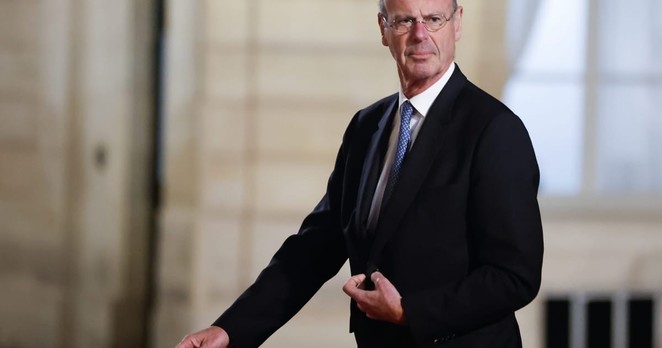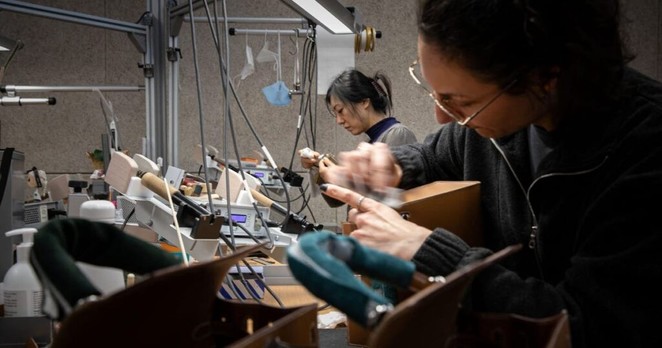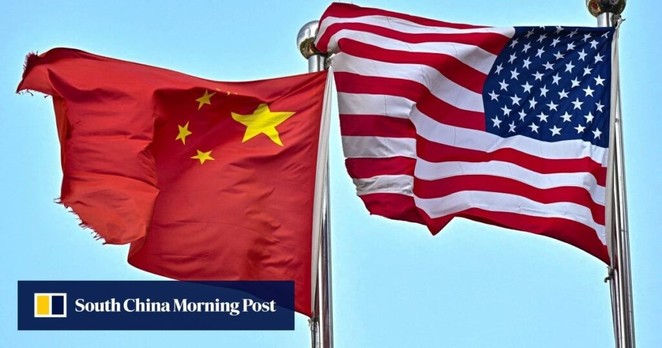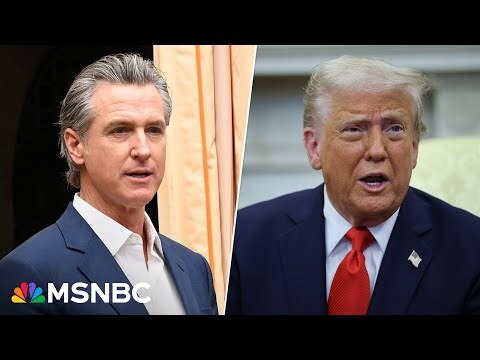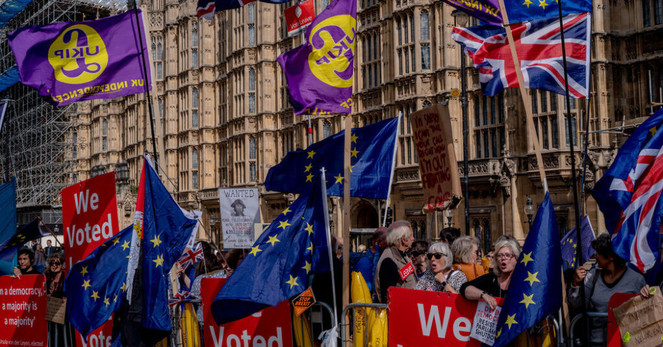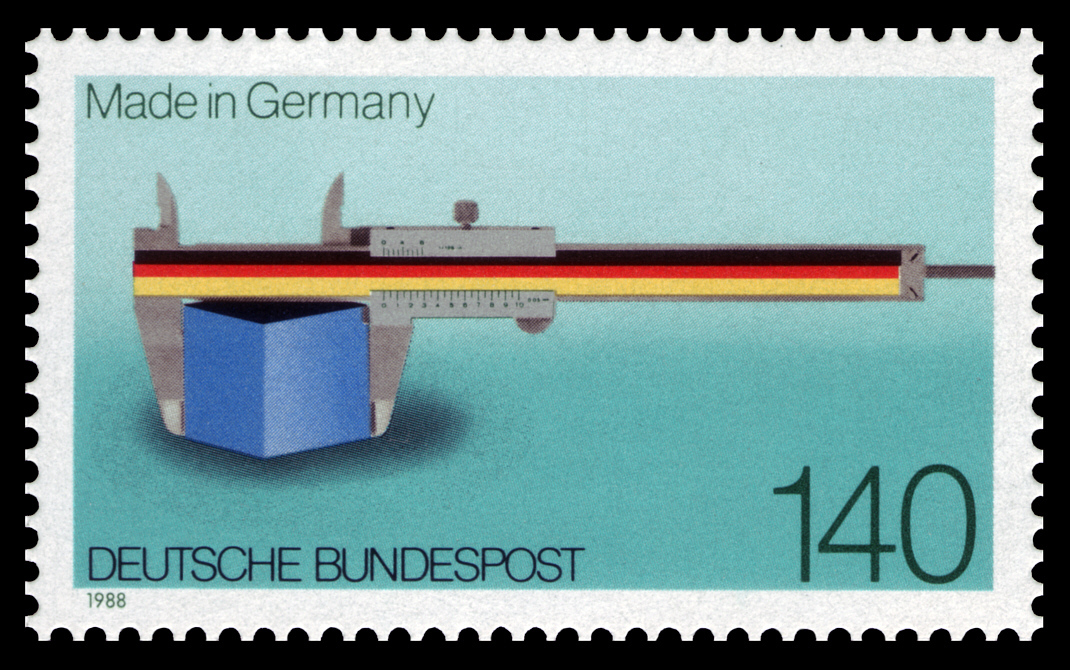https://www.europesays.com/2020031/ France floats resurrecting doomed EU-US trade deal it used to oppose – POLITICO #Americas #défense #DonaldTrump #EmmanuelMacron #EricLombard #Finance #france #FriedrichMerz #germany #growth #imports #investment #Protectionism #RuleOfLaw #security #sustainability #tariffs #trade #TradeAgreements #TradeWar #TTIP #UnitedStates #war
Frühere Suchanfragen
Suchoptionen
#protectionism
https://www.europesays.com/uk/41678/ Hermès to open new French factory as rival LVMH threatens Trump-inspired US move – POLITICO #Cars #DonaldTrump #EmmanuelMacron #EU #Europe #France #Markets #Protectionism #Regulation #Steel #Tariffs #Trade #TradeWar #UnitedStates
SK Group Chairman Chey Tae-won proposes Korea-Japan economic union to counter US protectionism, envisioning an EU-like bloc including ASEAN nations
#YonhapInfomax #CheyTaewon #KoreaJapanUnion #EconomicBloc #Protectionism #ASEANExpansion #Economics #FinancialMarkets #Banking #Securities #Bonds #StockMarket
https://en.infomaxai.com/news/articleView.html?idxno=59756
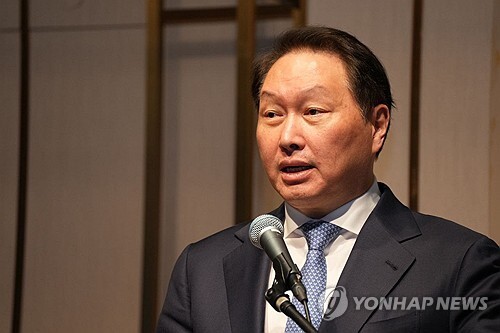
China says Trump trade tactics will backfire, like ‘bargaining with a tiger for its skin’ https://www.byteseu.com/941993/ #Beijing #China #DonaldTrump #EconomicHegemony #EconomicUnilateralism #economy #Japan #MinistryOfCommerce #Protectionism #reciprocity #SouthKorea #TariffExemptions #tariffs #TradeCoercion #UnitedStates #washington
Breaking
#California Governor #GavinNewsom announces #lawsuit against #Trump's #tariffs
https://www.youtube.com/live/66KJmXrKec8?si=PJ0OemVoLeUUDmcF
LoL
"Donald Trump’s presidential administration has exempted smartphones and computers from the 125% levies imposed on imports from China as well as other “reciprocal” tariffs, which experts had cautioned might cause electronic consumer prices to spike dramatically in the US.
The announcement was made late on Friday in a US Customs and Border Protection (CBP) notice that said the devices would be excluded from the 10% global tariff that Trump recently imposed on most countries, along with the much heftier import tax on China.
The CBP’s notice follows concerns from tech companies that the price of electronics for US consumers might surge with many of them manufactured in China. The notice also contained exemptions for additional electronics and components, such as memory cards, solar cells and semiconductors."
How Brexit, a Startling Act of Economic Self-Harm, Foreshadowed Trump’s Tariffs https://www.byteseu.com/917085/ #Customs(Tariff) #DonaldJ #EconomicConditionsAndTrends #Europe #EuropeanUnion #GovernmentBonds #GreatBritainWithdrawalFromEU(Brexit) #InternationalTradeAndWorldMarket #PoliticsAndGovernment #Protectionism(Trade) #RepublicanParty #trump #UnitedStatesInternationalRelations
Trump Tariffs Live Updates: China Raises Tariffs on U.S. Imports to 125% https://www.byteseu.com/912219/ #Conflicts #Customs(Tariff) #DonaldJ #Inflation(Economics) #Protectionism(Trade) #StocksAndBonds #trump
"In short, the U.S. economy will suffer enormously in a large-scale trade war with China, which the current levels of Trump-imposed tariffs, at more than 100 percent, surely constitute if left in place. In fact, the U.S. economy will suffer more than the Chinese economy will, and the suffering will only increase if the United States escalates. The Trump administration may think it’s acting tough, but it’s in fact putting the U.S. economy at the mercy of Chinese escalation.
The United States will face shortages of critical inputs ranging from basic ingredients of most pharmaceuticals to inexpensive semiconductors used in cars and home appliances to critical minerals for industrial processes including weapons production. The supply shock from drastically reducing or zeroing out imports from China, as Trump purports to want to achieve, would mean stagflation, the macroeconomic nightmare seen in the 1970s and during the COVID pandemic, when the economy shrank and inflation rose simultaneously. In such a situation, which may be closer at hand than many think, the Federal Reserve and fiscal policymakers are left with only terrible options and little chance of staving off unemployment except by further raising inflation."
https://www.foreignaffairs.com/united-states/trade-wars-are-easy-lose
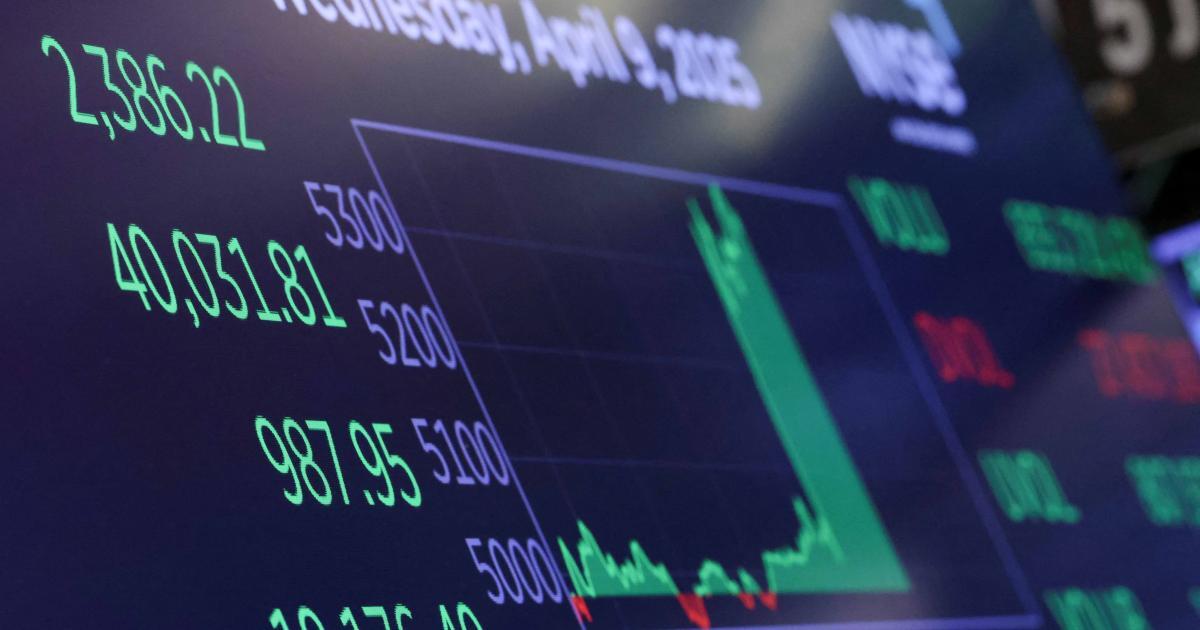
"Last week, the Trump administration announced $537 million in new subsidies for biofuels production. But browbeating Vietnam to purchase more ethanol subsidized by the US government is a victory for fair trade because God wants Iowa corn farmers to be rich. Condemning foreigners for not purchasing exports subsidized by the US government epitomizes the hypocrisy of Trump-style fair trade."
https://mises.org/mises-wire/trumps-fair-trade-offal
#economics #tariffs #vietnam #politics #protectionism

Africa: Africa's Opportunity in a Fragmenting Global Economy: [New Times] The global trade landscape is shifting dramatically. With the U.S. imposing new tariffs on key imports with countries already planning retaliation, the world is edging deeper into a long-term trade war. This is not just a bilateral dispute. It signals the acceleration of a broader move away from open globalisation toward… http://newsfeed.facilit8.network/TK4nS3 #Africa #GlobalEconomy #TradeWar #Protectionism #EconomicNationalism
"There is no universe in which Apple snaps its fingers and begins making the iPhone in the United States overnight. It could theoretically begin assembling them here, but even that is a years-long process made infinitely harder by the fact that, in Trump’s ideal world, every company would be reshoring American manufacturing at the same time, leading to supply chain issues, factory building issues, and exacerbating the already lacking American talent pool for high-tech manufacturing. In the long term, we could and probably will see more tech manufacturing get reshored to the United States for strategic and national security reasons, but in the interim with massive tariffs, there will likely be unfathomable pain that is likely to last years, not weeks or months.
The truth is that, assembled in the U.S. or not, the iPhone is a truly international device that is full of components manufactured all over the world and materials mined from dozens of different countries. Apple has what is among the most complex supply chains that has ever been designed in human history, and it is not going to be able to completely change that supply chain anytime soon.
We can see how the iPhone is made today by looking at numerous reports that Apple puts out every year, which outlines its current supply chain and workforce requirements"
"An important trait of an economist is the ability to engage in counterfactual reasoning. This skill is not unique to economists, but it is necessary for good economic reasoning. Essentially, counterfactual reasoning is the comparison of two hypothetical situations and distilling the benefits and costs of each. Bastiat calls this method comparing the seen with the unseen."
https://mises.org/mises-wire/nineteenth-century-wisdom-21st-century-bastiat-tariffs-and-usaid
#bastiat #tariffs #economics #science #protectionism #usaid

"The big, long-term question: what does the global trading system look like? The thing to watch for is whether the kind of deals Vietnam and others are making with the US end up destroying the most-favoured-nation principle underlying the World Trade Organization by giving the US special treatment. I’m moderately optimistic on this one. Label these deals as preferential trade agreements (which is pretty dodgy under WTO rules, but there are plenty of weak PTAs about already), recognise that many won’t make much difference to US exports anyway and move on. It strikes me that, if anything, attachment to the multilateral system, particularly in open trading economies like the south-east Asian nations, has increased as a result of the US threatening it. If countries are looking for a framework of international trade law, the WTO provides it. Unfortunately, though, I don’t see much sign that India is going to stop playing its spoiler role and paralysing the negotiations part of the WTO (as the US tried with the dispute settlement system)."
https://www.ft.com/content/3a6c0561-0628-43e4-86f0-bd3db881667b
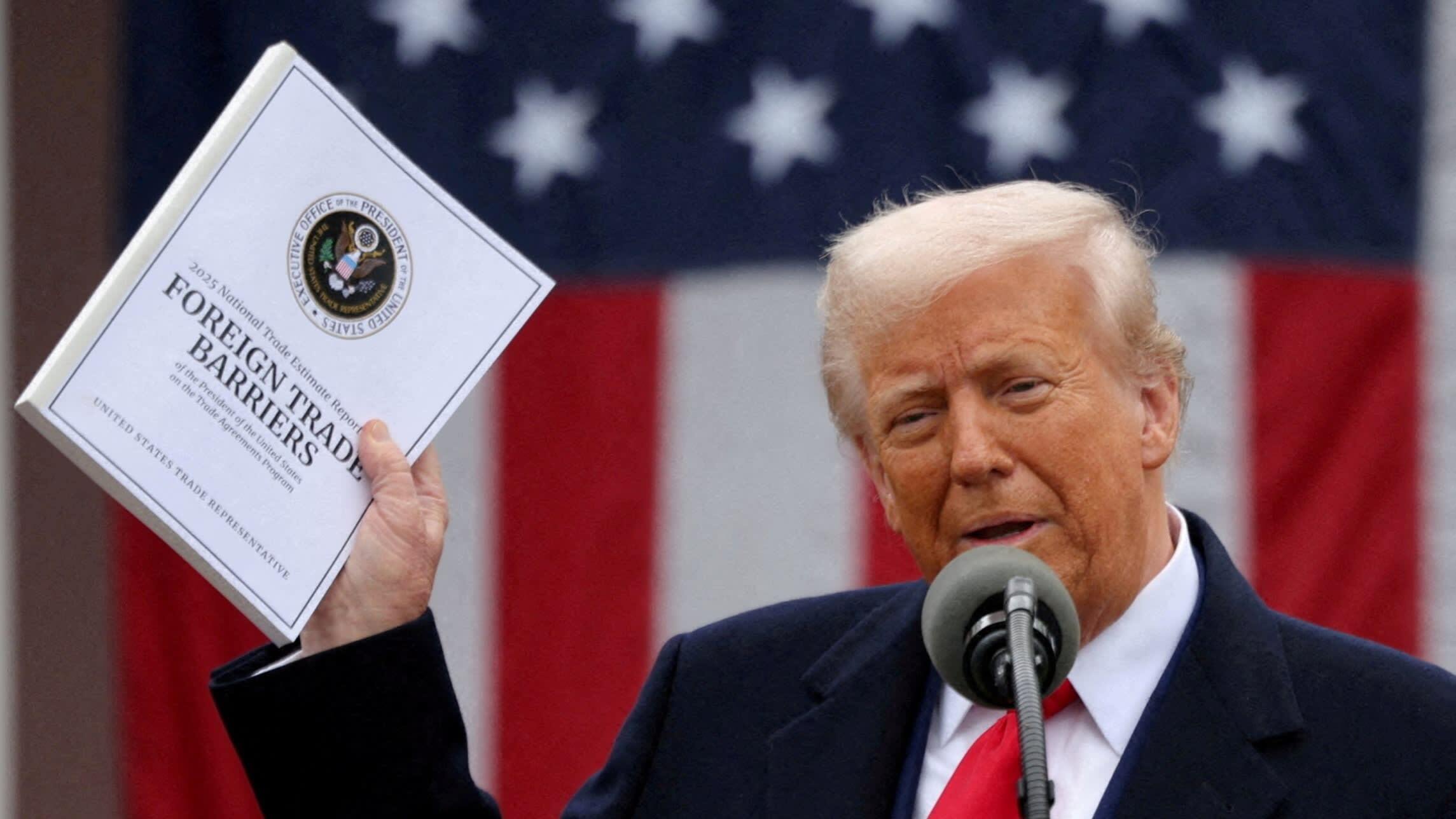
The #Tories were NEVER the party of #FreeTrade. Quite the opposite. The Tories were always the party of the Corn Laws, which is to say #Tariffs and #Protectionism.
"President Trump called the day he announced his tariff plan “Liberation Day.” This may be the most misleading name since the Affordable Care Act. Renaissance Macro Research head of US economic research Neil Dutta more appropriately labeled it “Obliteration Day.” President Trump’s tariffs, along with his support for war, could obliterate what is left of America’s peace and prosperity." https://www.lewrockwell.com/2025/04/ron-paul/liberation-or-obliteration/ #ronpaul #liberationday #obliterationday #protectionism #tariffs #economics #tradewar
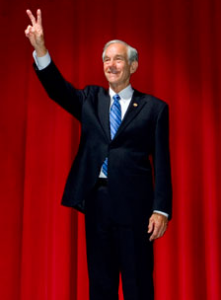
"Trump’s erratic tariff actions, alongside his reversal of the former bipartisan policy on Ukraine, has already had indirect results. In alleged defense against the American turn, Europe and Canada have both donned the nationalist mantle of sovereignty and given Trump one of the main changes he has called for: an increase in their military expenditures so as to correct America’s disproportionate share of NATO’s military costs. Since American firms will also get a good share of the increased military expenditures abroad, the bloated US military-industrial complex will get a further boost.
As well, it may be that the uncertainty created over access to the US market likewise has method in its madness: corporations may now bias future global investments and supply chains to locate in the US “just-in-case.” This is of general concern but hits home especially in Canada since it is so close, so already integrated, and with costs relatively comparable.
Underlying all this lies the primary question at the core of Trump’s agenda. Paraphrased, it asks: “Why, if America is the world’s dominant power, does it accept such a disproportionate share of globalization’s burdens and receive such an unfair share of the benefits?” The framing of America’s status in these over-wrought terms adds a further method-in-madness: misdirection."
The guardian writes: "Era of globalisation ‘at an end’, says UK minister, as countries mull tariff responses“.
I don’t get it. A single country decides to leave globalisation. 191 countries don’t. Why does this end globalisation?
Yes, the USA are a big country. But resigning instead of adjusting and going on without them fully "in“ is not a good idea. They will see on their own that it is disadvantageous to not participate in the global market.
"Take a look at this iPhone 16 Pro. Your cost, for the 256GB version, is $1,100. The cost of all the hardware inside—aka the bill of materials—was about $550 to Apple when the phone was introduced, says Wayne Lam, research analyst at TechInsights, which breaks down major products. Throw in assembly and testing and Apple’s cost rises to around $580. Even when you account for Apple’s advertising budget and all the included services—iMessage, iCloud, etc.—there’s still a healthy profit margin.
Now factor in the newly announced tariff for goods from China, which currently totals 54%. The cost rises to around $850. That profit margin would shrink dramatically if Apple didn’t up the price. And you don’t become a trillion-dollar gadget company by charging for things at cost."


